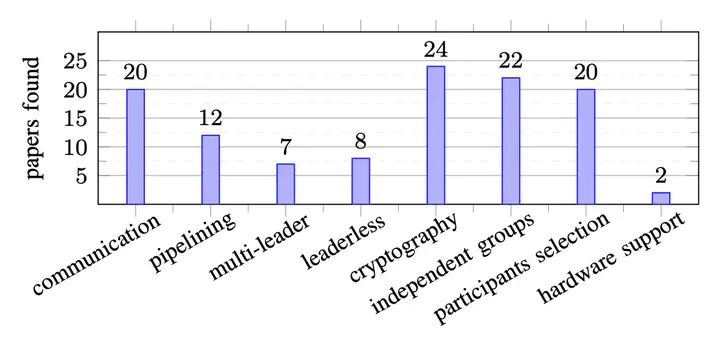 For each category: How many papers used at least one scalability-enhancing technique fitting to this category.
For each category: How many papers used at least one scalability-enhancing technique fitting to this category.
Abstract
With the advancement of blockchain systems, many recent research works have proposed distributed ledger technology (DLT) that employs Byzantine fault-tolerant (BFT) consensus protocols to decide which block to append next to the ledger. Notably, BFT consensus can offer high performance, energy efficiency, and provable correctness properties, and it is thus considered a promising building block for creating highly resilient and performant blockchain infrastructures. Yet, a major ongoing challenge is to make BFT consensus applicable to large-scale environments. A large body of recent work addresses this challenge by developing novel ideas to improve the scalability of BFT consensus, thus opening the path for a new generation of BFT protocols tailored to the needs of blockchain. In this survey, we create a systematization of knowledge about the novel scalability-enhancing techniques that state-of-the-art BFT consensus protocols use. For our comparison, we closely analyze the efforts, assumptions, and trade-offs these protocols make.